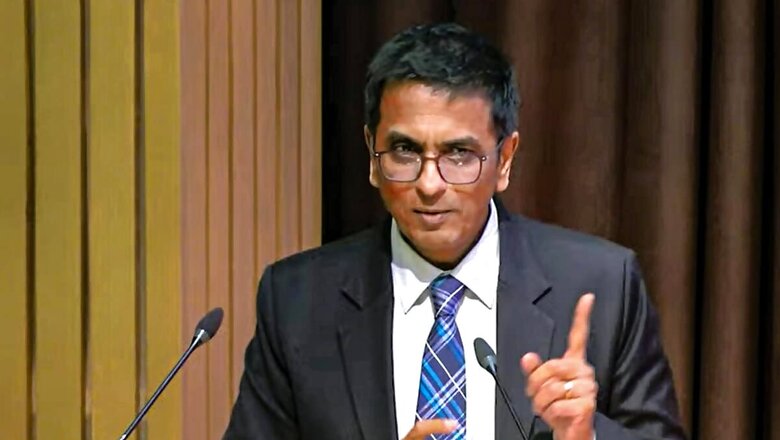
views
Chief Justice of India DY Chandrachud on Monday spoke about some historic and some sensitive judgements by the Supreme Court and the public’s reactions to them.
Talking about the Ayodhya verdict, the CJI said the five judges, who had delivered the historic ruling, had unanimously decided there would be no authorship ascribed to the judgement.
Ayodhya Verdict: A Judgement of the Court
On November 9, 2019, a five-judge bench headed by the then CJI Ranjan Gogoi had ruled in favour of the construction of a Ram temple at the disputed site in the holy town of Uttar Pradesh.
Speaking with PTI, CJI Chandrachud, who was part of the constitution bench, spoke on the issue and said, that when the judges sat together, as they do before a pronouncement, it was unanimously decided that this will be a “judgement of the court”.
“When the five-judge bench sat to deliberate on the judgement as we all do before a Judgement is pronounced, we all decided unanimously that this will be a judgement of the court. And, therefore, there was no authorship ascribed to any individual judge,” the CJI said.
“The case has a long history of conflict, of diverse viewpoints based on the history of the nation and all those who were part of the bench decided that this will be a judgement of the court. The court will speak through one voice and the idea of doing so was to send a clear message that all of us stood together not only in the ultimate outcome but in the reasons indicated in the judgement,” he said.
Abrogation of Article 370
The 50th Chief Justice of India further refused to respond to criticism over the Apex Court’s unanimous verdict upholding the abrogation of Article 370 that provided special status to the erstwhile state of Jammu and Kashmir. He said the judges decide a case according to the Constitution and the law.
“So, far as we are concerned we decide according to the Constitution and the law. I don’t think it will be appropriate for me either to respond to the criticism or mount a defence to my judgment. What we have said in my judgement is reflected in the reason present in the signed judgement and I must leave it at that,” the CJI said.
Same-sex Marriage
He also spoke about the five-judge constitution bench verdict refusing to legalise same-sex marriages and stressed that the outcome of a case is never personal to a judge.
The CJI, however, acknowledged the “long and hard battle” queer couples fought for realisation of their rights.
“Once you decide a case you kind of distance yourself from the outcome. Outcomes are never personal to us as a judge. I never have any regrets. Yes, I have been in a majority in many cases and minority in many cases. But the important part of the life of a judge is never to associate yourself with a cause. Having decided a case, I leave it at that,” he noted.
(With PTI inputs)

















Comments
0 comment